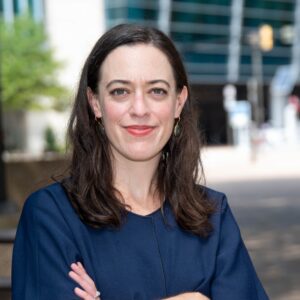 We are happy to announce that Hannah Bloch-Wehba has joined our team as a fellow! Hannah is an Associate Professor of Law at Texas A&M University School of Law. Her research interests include platform governance, the use of AI and automated decisionmaking in government, and the impact of privatization on transparency, accountability, and civil liberties. As a fellow, she is working on a project related to the implications of technological change for the public-private divide in U.S. constitutional law. Welcome Hannah, we are looking forward to working with you!
We are happy to announce that Hannah Bloch-Wehba has joined our team as a fellow! Hannah is an Associate Professor of Law at Texas A&M University School of Law. Her research interests include platform governance, the use of AI and automated decisionmaking in government, and the impact of privatization on transparency, accountability, and civil liberties. As a fellow, she is working on a project related to the implications of technological change for the public-private divide in U.S. constitutional law. Welcome Hannah, we are looking forward to working with you!
Schlagwort: Fellow
Fellowship von Daniel Staemmler
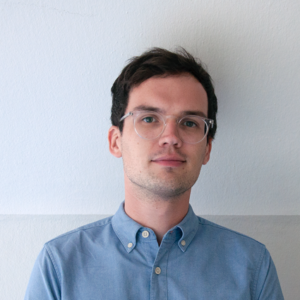 Wir freuen uns, wieder einen neuen Fellow in unserer Gruppe begrüßen zu dürfen: Daniel Staemmler ist wissenschaftlicher Mitarbeiter im ERC-Forschungsprojekt „Protest and Order. Democratic Theory, Contentious Politics and the Changing Shape of Western Democracy“ (POWDER) an der Humboldt-Universität zu Berlin. Er studierte Politikwissenschaft und Soziologie in Münster, Riga und Berlin. In seiner Forschung widmet er sich politischem Protest und digitalem Aktivismus, alternativen Infrastrukturen und Formen digitaler Demokratie. Herzlich willkommen, Daniel!
Wir freuen uns, wieder einen neuen Fellow in unserer Gruppe begrüßen zu dürfen: Daniel Staemmler ist wissenschaftlicher Mitarbeiter im ERC-Forschungsprojekt „Protest and Order. Democratic Theory, Contentious Politics and the Changing Shape of Western Democracy“ (POWDER) an der Humboldt-Universität zu Berlin. Er studierte Politikwissenschaft und Soziologie in Münster, Riga und Berlin. In seiner Forschung widmet er sich politischem Protest und digitalem Aktivismus, alternativen Infrastrukturen und Formen digitaler Demokratie. Herzlich willkommen, Daniel!
Fellowship von Amélie Heldt
 Mit diesem Monat startet Amélie Heldt als neue Fellow bei uns in der Forschungsgruppe. Amélie Heldt ist Wissenschaftliche Mitarbeiterin am Leibniz-Institut für Medienforschung | Hans-Bredow-Institut. Sie beschäftigt sich mit Plattformregulierung, Social Media Governance, den Auswirkungen neuer Technologien auf Meinungsbildung und öffentlichen Diskurs sowie der Wahrnehmung von Grundrechten im Kontext algorithmischer Entscheidungen und autonomer Systeme. In ihrer Dissertation untersucht sie die Ausstrahlungswirkung der Meinungsfreiheit auf Social Media Plattformen. Amélie ist mit dem Humboldt-Institut für Internet und Gesellschaft assoziiert und war 2019 Visiting Fellow am Information Society Project der Yale Law School. Herzlich willkommen, Amélie!
Mit diesem Monat startet Amélie Heldt als neue Fellow bei uns in der Forschungsgruppe. Amélie Heldt ist Wissenschaftliche Mitarbeiterin am Leibniz-Institut für Medienforschung | Hans-Bredow-Institut. Sie beschäftigt sich mit Plattformregulierung, Social Media Governance, den Auswirkungen neuer Technologien auf Meinungsbildung und öffentlichen Diskurs sowie der Wahrnehmung von Grundrechten im Kontext algorithmischer Entscheidungen und autonomer Systeme. In ihrer Dissertation untersucht sie die Ausstrahlungswirkung der Meinungsfreiheit auf Social Media Plattformen. Amélie ist mit dem Humboldt-Institut für Internet und Gesellschaft assoziiert und war 2019 Visiting Fellow am Information Society Project der Yale Law School. Herzlich willkommen, Amélie!
Fellowship: Wir begrüßen Lisa-Maria Neudert und Martin Seeliger
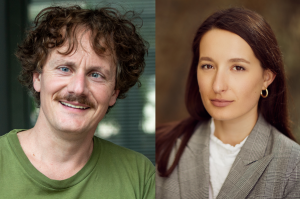
Lisa-Maria Neudert ist Doktorandin am Oxford Internet Institute und beschäftigt sie sich mit der Regulierung von Plattformen, ein besonderer Fokus liegt dabei auf Governance rund um KI, Content-Moderation und Desinformation.
Martin Seeliger promovierte am Kölner Max-Planck-Institut für Gesellschaftsforschung und ist derzeit wissenschaftlicher Mitarbeiter an der Universität Hamburg.
Lisa-Maria und Martin werden bis einschließlich Mai in unserer Forschungsgruppe zu Gast sein. Herzlich willkommen!
Neue Fellows: Robert Gorwa und Torben Klausa

 Seit heute sind Robert Gorwa und Torben Klausa als Fellows bei uns in der Forschungsgruppe. Robert ist Doktorand am Institut für Politik und Internationale Beziehungen der Oxford University und forscht u.a. zu Regulierung von Plattformen. Torben Klausa arbeitet als Journalist für den Tagesspiegel und promoviert über die dienende Freiheit sozialer Netzwerke. Wir freuen uns auf einen anregenden Austausch!
Seit heute sind Robert Gorwa und Torben Klausa als Fellows bei uns in der Forschungsgruppe. Robert ist Doktorand am Institut für Politik und Internationale Beziehungen der Oxford University und forscht u.a. zu Regulierung von Plattformen. Torben Klausa arbeitet als Journalist für den Tagesspiegel und promoviert über die dienende Freiheit sozialer Netzwerke. Wir freuen uns auf einen anregenden Austausch!
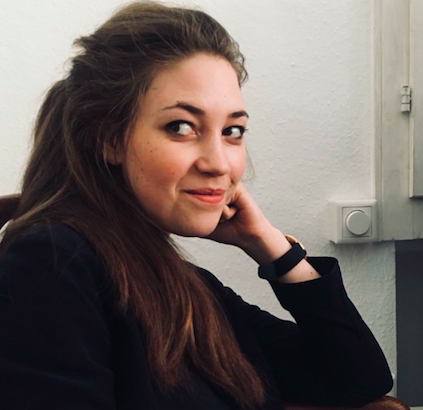
Anna-Verena Nosthoff
https://www.weizenbaum-institut.de/portrait/p/anna-verena-nosthoff/
 Anna-Verena Nosthoff ist Doktorandin am Institut für Soziologie der Universität Freiburg und Dozentin am Institut für Politikwissenschaften der Universität Wien. Ihre akademische Forschung beschäftigt sich u.a. mit Digitalisierung und Demokratie, algorithmischer Gouvernementalität und der Kybernetisierung des Politischen. Im Rahmen ihres Fellowships am Weizenbaum-Institut arbeitete sie an einem Buch über die “Gesellschaft der Wearabes” (Nicolai Publishing & Intelligence, 2019, mit Felix Maschewski) und der theoretischen Kontextualisierung von überwachungskapitalistischer Herrschaft und kybernetischer Regierung.
Anna-Verena Nosthoff ist Doktorandin am Institut für Soziologie der Universität Freiburg und Dozentin am Institut für Politikwissenschaften der Universität Wien. Ihre akademische Forschung beschäftigt sich u.a. mit Digitalisierung und Demokratie, algorithmischer Gouvernementalität und der Kybernetisierung des Politischen. Im Rahmen ihres Fellowships am Weizenbaum-Institut arbeitete sie an einem Buch über die “Gesellschaft der Wearabes” (Nicolai Publishing & Intelligence, 2019, mit Felix Maschewski) und der theoretischen Kontextualisierung von überwachungskapitalistischer Herrschaft und kybernetischer Regierung.
Fellowship von Anna-Verena Nosthoff
 Anna-Verena Nosthoff ist von heute bis Ende Oktober Research Fellow in unserer Forschungsgruppe. Sie ist Doktorandin am Institut für Soziologie der Universität Freiburg und Dozentin am Institut für Politikwissenschaften der Universität Wien. Ihre akademische Forschung beschäftigt sich u.a. mit Digitalisierung und Demokratie, algorithmischer Gouvernementalität und der Kybernetisierung des Politischen. Herzlich Willkommen!
Anna-Verena Nosthoff ist von heute bis Ende Oktober Research Fellow in unserer Forschungsgruppe. Sie ist Doktorandin am Institut für Soziologie der Universität Freiburg und Dozentin am Institut für Politikwissenschaften der Universität Wien. Ihre akademische Forschung beschäftigt sich u.a. mit Digitalisierung und Demokratie, algorithmischer Gouvernementalität und der Kybernetisierung des Politischen. Herzlich Willkommen!
Fellowship von Eva Weber-Guskar
 Für die kommenden drei Monate ist Eva Weber-Guskar als Research Fellow am Weizenbaum-Institut. Eva Weber-Guskar ist Gastprofessorin für Philosophie an der Humboldt Universität zu Berlin und hat sich innerhalb ihres Forschungsinteresse der philosophischen Anthropologie der Ethik des Digitalen zugewandt. Im Rahmen ihres Fellowships wird sie bei uns sowie der Forschungsgruppe 20 “Kritikalität KI-basierter Systeme” mitarbeiten.
Für die kommenden drei Monate ist Eva Weber-Guskar als Research Fellow am Weizenbaum-Institut. Eva Weber-Guskar ist Gastprofessorin für Philosophie an der Humboldt Universität zu Berlin und hat sich innerhalb ihres Forschungsinteresse der philosophischen Anthropologie der Ethik des Digitalen zugewandt. Im Rahmen ihres Fellowships wird sie bei uns sowie der Forschungsgruppe 20 “Kritikalität KI-basierter Systeme” mitarbeiten.
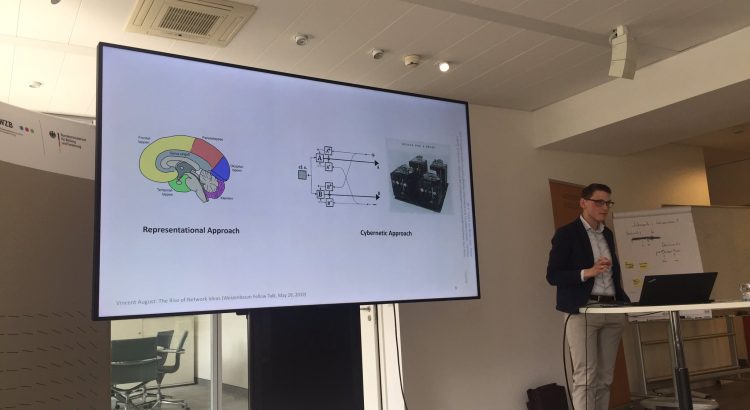
Vincent August: The Rise of Network Ideas: From Cybernetics to Governance
28. Mai 2019, 14:00 - 16:00 Uhr
Weizenbaum-Institut, Raum A104
Veranstaltungswebsite | Podcast
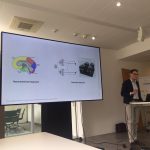 Why is it that we describe our societies in terms of networks? Academic and popular literature usually suggests that computers and the internet produced the network society. However, there is another story to be told. Vincent August revealed how social and political thought deliberately enforced cybernetic network ideas to re-shape the way we think about society and politics. In a historical perspective, his talk traced concepts of complexity, self-regulation, and network governance from their origins in cybernetics via the “silent revolution” of the 1970s to the present. In a systematic perspective, it examined the demands for diversity and creativity as well as the massive shift in our understanding of subjectivity and power that resulted from the rise of network ideas.
Why is it that we describe our societies in terms of networks? Academic and popular literature usually suggests that computers and the internet produced the network society. However, there is another story to be told. Vincent August revealed how social and political thought deliberately enforced cybernetic network ideas to re-shape the way we think about society and politics. In a historical perspective, his talk traced concepts of complexity, self-regulation, and network governance from their origins in cybernetics via the “silent revolution” of the 1970s to the present. In a systematic perspective, it examined the demands for diversity and creativity as well as the massive shift in our understanding of subjectivity and power that resulted from the rise of network ideas.
Christoph Raetzsch: New Infrastructures of Publics and the Circulation of Communicative Objects
Dienstag, 11.09.2018Christoph Raetzsch drafts an infrastructural perspective on the public sphere through the concept of communicative objects. Instead of the normative approach on the technological and socio-cultural formation of public communication, the concept is intended to question the importance of journalism as a central agent of the public and overcomes the normative distinction between public and private communication.
Weizenbaum-Institut, Raum A104